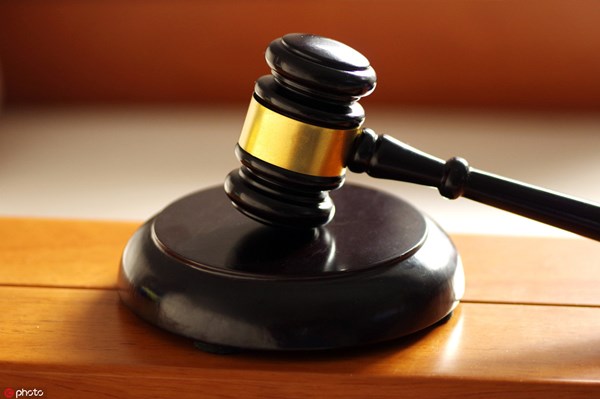'Blacklist' targeting bribers to be unveiled
 |
| [Photo/IC] |
Chinese courts will more strictly punish bribe-givers together with those who accept bribes, and set up a "blacklist" for those who offer bribes, a senior official of China's top court said.
"We're working with disciplinary and supervisory organs to promote the building of the blacklist, and fulfilling information sharing in bribery cases," Jiang Wei, vice-president of the Supreme People's Court, told China Daily in an exclusive interview on the sidelines of the ongoing two sessions annual meetings of China's top legislative and political advisory bodies.
Establishing the blacklist is a key measure in implementing the requirement from the Central Committee of the Communist Party of China to fight bribe givers as well as recipients. It has been highlighted in communiques approved at the fifth and sixth plenary sessions of the 19th Central Commission for Discipline Inspection of the CPC.
According to Jiang, courts in some areas have already explored ways to set up the blacklist.
Courts in Shaanxi province have cooperated with local anti-graft departments in building a provincial-level database of bribe-givers that includes enterprises and individuals offering bribes to officials.
Courts in Hunan province worked with local anti-corruption agencies to further improve the blacklist system, exposing the information of bribe-givers and punishing them jointly with related departments, and this turned out to have a bigger deterrent effect, Jiang said.
"Currently, the nation's anti-graft watchdog is pushing ahead with this work, and courts nationwide will work closely with them to learn from the experiences of exploration and further improve the efforts,"Jiang said."We will work on setting up the blacklist system across the country."
Giving bribes is a main source of corruption, "but some judicial departments in some areas just pay attention to those accepting bribes, as they haven't realized the seriousness of offering bribes", Jiang said, adding that there is no unified standard for punishing bribers.
Under the Criminal Law, the crime of offering bribes constitutes someone doing it with the purpose of obtaining improper profits.
"But what 'improper profits' are is not yet clear in legal practice, and how to identify them has no specific rules," Jiang said.
To solve the problem, the top court is drafting a judicial interpretation on handling criminal cases related to bribery with the Supreme People's Procuratorate, the country's top prosecuting authority, in a bid to further unify the punishment standard and intensify the recovery of assets involved in such cases, he said.
The SPP's annual work report, delivered on Tuesday to the ongoing fifth session of the 13th National People's Congress, China's top legislature, said that 9,083 people were accused of accepting bribes last year, an increase of 21.5 percent year-on-year, and 2,689 were accused of offering bribes, up 16.6 percent over 2020.
Jiang said, "We'll also disclose a few influential cases as a signal of strictly punishing bribe-givers in society, and give judicial suggestions to enterprises and industrial associations to ask them to strengthen management and help prevent bribery risks."
According to the top court's annual work report, Chinese courts concluded some 23,000 cases of corruption, malpractice and bribery last year, with punishment given to 27,000 people.
Since the 18th National Congress of the CPC in 2012, courts at all levels have implemented the strict governance of the Party and advanced the rule of law by efficiently hearing corruption-related cases.
Statistics from the top court showed that some 320,000 people were punished for bribery, malpractice or corruption between 2013 and last year, of whom 16.7 percent were given heavier penalties, meaning a sentence of five or more years in prison. The rate of heavier punishment was 6.5 percentage points higher than that for other crimes.
In September last year, the top court jointly issued a guideline with several other authorities on investigating bribe-givers along with those receiving bribes. The guideline specified a few behaviors as major targets to punish, including offering bribes many times, offering large amounts of bribes and providing bribes to several people.
Party members and government officials who offer bribes, and bribe-givers in the areas of environmental protection, finance, production safety, disaster relief, social insurance, education, healthcare and food and drugs should also be severely punished, according to the guideline.







